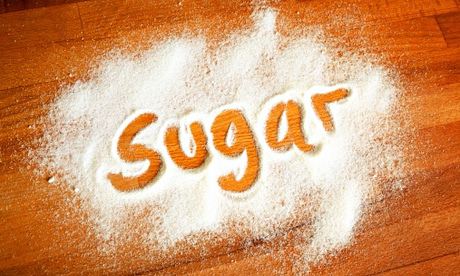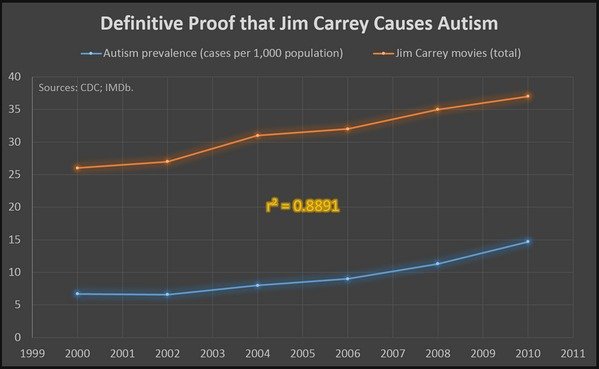 To most people, it’s general knowledge that eating anything sugary makes you feel good.
To most people, it’s general knowledge that eating anything sugary makes you feel good.
A spike in blood sugar gives you an instant pep, and can really lift you up when you’re feeling down.
That’s why cookies, cakes and ice cream are known as “comfort foods” — since they bring joy to those who are feeling down, depressed or emotional.
Or is it that these people are feeling down and depressed because of these comfort foods?
Well according to a new observational study(1) released by the American Journal of Clinical Nutrition, there’s a strong association between added sugar intake, and an increase in depression as the years go by.
Looks like it’s time to give up those so-called comfort foods if you want to live happily ever after.
Or is it?
Before jumping to conclusions, let’s take a closer look at this study and what the facts are actually telling us.
The researchers followed a group of 70,000 women that had no prior cases of depression (baseline was taken between 1994 and 1998). After baseline was established, they did a follow up after 3 years and here were the results, in their own words:
“We found a progressively higher dietary GI to be associated with increasing odds of incident depression. Progressively higher consumption of dietary added sugars was also associated with increasing odds of incident depression.”
GI stands for glycemic index; basically, the higher a food is on the GI scale, the more it causes your blood sugar levels to rise. So what the researchers are saying is that the more sugary foods these women ate, the higher the observed rates of depression.
At this point, 99% of people will take this information at face value, grab their pitchforks and continue to rage war on sugar. And you might feel an urge to join them.
But hang on there for just a second, sweet toots. There’s more to this than meets the eye because here’s something else they found:
“…higher consumption of lactose, fiber, nonjuice fruit, and vegetables was significantly associated with lower odds of incident depression.”
Basically, if the sugar eaten came from natural sources then this “strong association” to depression would not only disappear, it might even help decrease the odds.
Imagine that, fruits and veggies actually making you feel better. Who would’ve thought?
The next thing you have to understand, is that the link they found was an association, not a causation. This means that while it’s true that the rate of depression increased alongside the intake of high glycemic foods, the researchers cannot say with certainty that one caused the other. Further research is needed to prove this “link.”
You might be thinking: “But how’s that possible, it seems like a strong enough connection to me.”
Let me give you a practical example to explain why assumptions should be taken with a grain of salt: Recently, Jim Carrey has been running his mouth on Twitter about the new Californian law (which makes vaccinations mandatory for all children that wish to attend schools of the state).
Apparently, keeping these kids safe from diseases that were once considered eradicated, but have recently made a comeback due to a bunch of misinformed clowns is being fascist… or something.
It’s not often I’m ashamed of being a Canadian. In fact, the only time I wanted to apologize to the world is when Nickelback happened.
But now I feel the need to do so again. Well done Jim, you dickhead.
Anyways, he’s arguing that kids are being poisoned due to the “toxins” in vaccinations (such as mercury), and this is causing autism rates to increase. What he fails to understand is that Mercury has been removed from vaccinations in both Canada and US since like, the early 2000’s. This means that while on the surface it sounds convincing, and the association seems strong, there is no evidence to prove causation.
It seems when you have 4 million followers, logic is irrelevant.
So on Jim goes, telling everyone that because the rate at which kids are being vaccinated has gone up, and so has the rate of autism, that one factor caused the other.
Well, two can play that game. Take a look at the graph below.

According to the data here, it seems that as Jim Carrey released more and more movies, the rate of autism in kids climbed higher and higher. Therefore, I think it’s safe to say that Jim Carrey himself causes autism, and is only blaming the non-existent Mercury as part of his clever cover up scheme.
Quick, let’s start ranting on Twitter so we can stop this monster!
Oh what’s that, you find this line of thinking hard to accept?
Now you understand why association doesn’t necessarily mean causation. Let’s get back to the “sugar causes depression” study.
Besides the fact that it’s an association, another thing to take into consideration is that this was an observational study. This means a shit load of variables were probably not taken into account, or controlled by the researchers.
As an example, how many of those 70,000 women were lazy as hell and did nothing but sit around all day? This is important to know because it’s a well researched fact that exercise helps the central nervous system release endorphins (basically, chemicals that give us a feeling of euphoria) and improve your dopamine levels (2). All of this helps elevate mood… which last I checked, was quite the opposite of depression.
So it’s not unwise to assume that if this study was done on a population of active individuals, the rates of depression would plummet, regardless of the amount of sugar intake.
Then there’s the uncertainty of life itself. Don’t forget that the follow up portion of this study was done during the time of the tech bubble boom (and the subsequent burst). This was an era when a lot of money was thrown around (then lost), and a lot of jobs were created (then lost). All in a relatively short period of time.
And women being the beautiful (yet emotional) creatures that they are, it’s not a stretch to assume that all of their feels were taken for a ride which rivals the scariest roller coasters on Earth. Now I’m no shrink, but I don’t think anyone can disagree that such instability could have heavily contributed to the higher rates of depression.
Finally, another limitation is that the study cannot disprove the opposite scenario – are people who are already at a risk of developing depression more likely to reach for junk food and refined sugars in the first place? Because if so, the data would look very similar.
The truth is, keeping track of 70,000 individuals and the details of their lives is very hard. It’s entirely possible a majority of the rise in depression could have come from other than just an increased sugar intake. We don’t know.
So what’s the bottom line then? Was this study totally useless and a waste of everyone’s time?
Definitely not. I actually think it’s a great “door opener”. It’s a study that gives researches incentive to look into this matter further by doing a proper controlled trial.
As for the original question: Does sugar cause depression?
My answer is maybe. If certain factors are in play such as:
- Inactive lifestyle
- Too much drinking and/or substance abuse
- Work stress
- Family stress
Then yes, an increased intake of refined sugar and junk food in general will probably increase your chances of developing depression down the road.
It’s more of a “the billionth feather that broke the camel’s back” situation… at least until more research is done, and we have more concrete data.
So in the meantime, just remember that as long as you’re not doing stupid shit, staying active, managing your stress levels, and eating good whole foods most of the time, then a donut or a pack of gummy bears probably won’t leave you feeling like you want to give up on life.
Only listening to Nickelback or reading Jim Carrey’s tweets can do that.
That’s right, a Canadian just roasted two of his own kind in one fell swoop. You saw it here first.
References

3 Comments
Well said. The trick is to stay active. Of course you won’t feel happy if you’re inactive and loading up on sugar.
Yeah seems pretty obvious doesn’t it. It’s crazy the amount of “bad” factors working out can overturn.
Sugar is what I’d like to call the sweetest drugs. Its sweetness numbs our senses until we felt like we cannot live without it. Battling sugar craving is really difficult, but with sheer determination and commitment we can overcome it. Every time I have my sugar craving, I opt myself into eating fruits since it’s healthier than the processed foods out there.